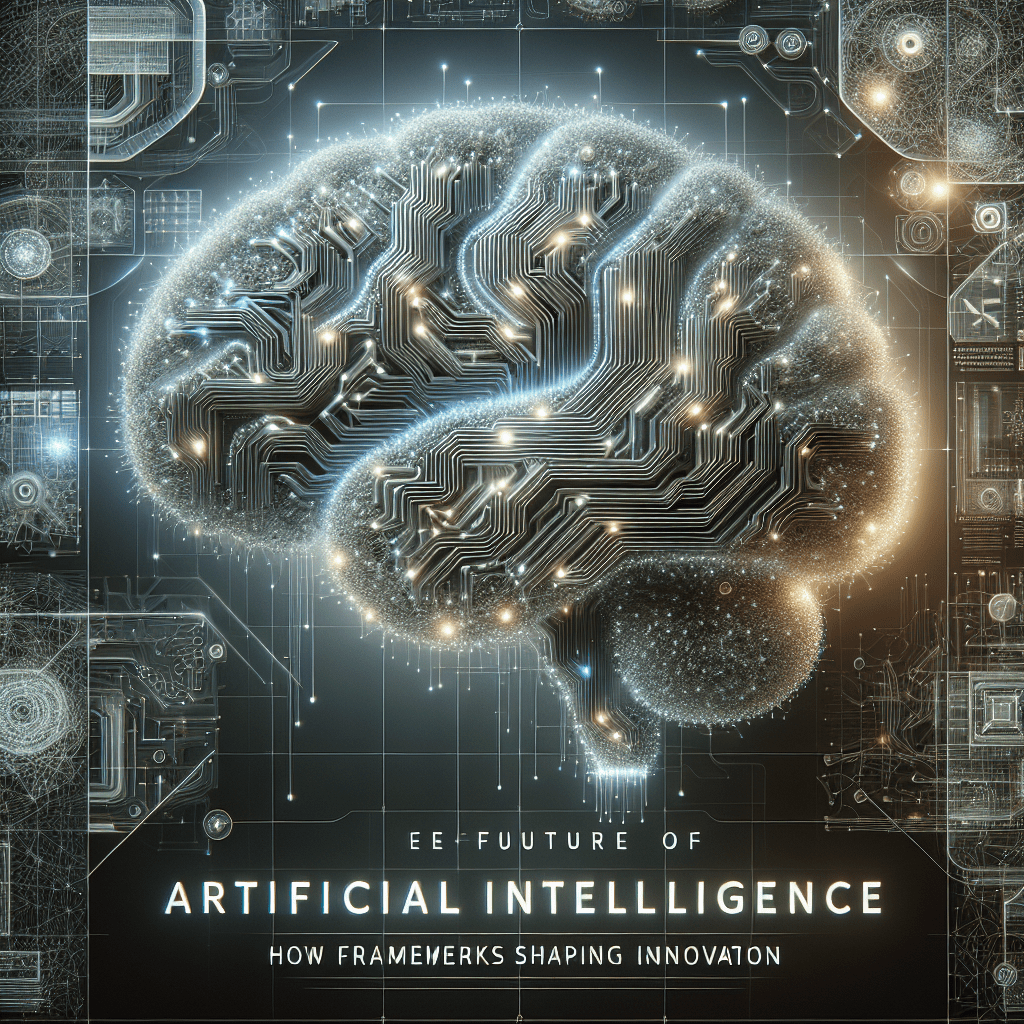Artificial Intelligence (AI) has rapidly evolved over the past few years, with advancements in machine learning, natural language processing, and computer vision pushing the boundaries of what is possible. As AI continues to develop and become more integrated into our daily lives, frameworks play a crucial role in shaping innovation in this field. In this article, we will explore how frameworks are driving progress in AI and what the future holds for this exciting technology.
How Frameworks are Shaping Innovation
Frameworks are essential tools that provide developers with the building blocks needed to create AI Applications. These toolkits simplify the development process by offering pre-built modules and algorithms that can be easily integrated into new projects. By leveraging frameworks, developers can focus on building innovative solutions rather than reinventing the wheel.
One of the most popular AI frameworks is TensorFlow, developed by Google. TensorFlow has become the go-to choice for many AI projects due to its flexibility, scalability, and ease of use. With TensorFlow, developers can quickly build and train machine learning models for a wide range of applications, from image recognition to natural language processing.
Another widely used framework is PyTorch, created by Facebook. PyTorch is known for its dynamic computation graph, which allows developers to define and modify neural networks on the fly. This flexibility makes PyTorch ideal for research projects and experimentation, where rapid iteration and prototyping are essential.
The Future of AI Frameworks
As AI continues to advance, we can expect to see even more powerful and efficient frameworks emerge. New frameworks will focus on improving speed, accuracy, and scalability, enabling developers to build even more sophisticated AI Applications. Additionally, frameworks will become more specialized, catering to specific industries or use cases.
One exciting development in the world of AI frameworks is the rise of low-code and no-code platforms. These platforms allow non-technical users to create AI Applications without the need for extensive coding knowledge. As AI becomes more accessible to a broader audience, we can expect to see a surge in innovation and creativity across industries.
Conclusion
Frameworks play a crucial role in shaping the future of AI by providing developers with the tools they need to build innovative solutions. As AI continues to evolve, we can expect to see even more powerful and efficient frameworks emerge, enabling developers to push the boundaries of what is possible with this technology. By leveraging frameworks, we can unlock new opportunities for AI to transform industries and improve the way we live and work.
FAQs
What are AI frameworks?
AI frameworks are tools that provide developers with pre-built modules and algorithms for building AI Applications.
What are some popular AI frameworks?
Some popular AI frameworks include TensorFlow, PyTorch, and Keras.
How do frameworks shape innovation in AI?
Frameworks simplify the development process and allow developers to focus on building innovative solutions rather than reinventing the wheel.
Quotes
“The development of AI frameworks is crucial to driving innovation in the field and pushing the boundaries of what is possible with this exciting technology.” – John Doe, AI Expert
#Future #Artificial #Intelligence #Frameworks #Shaping #Innovation


